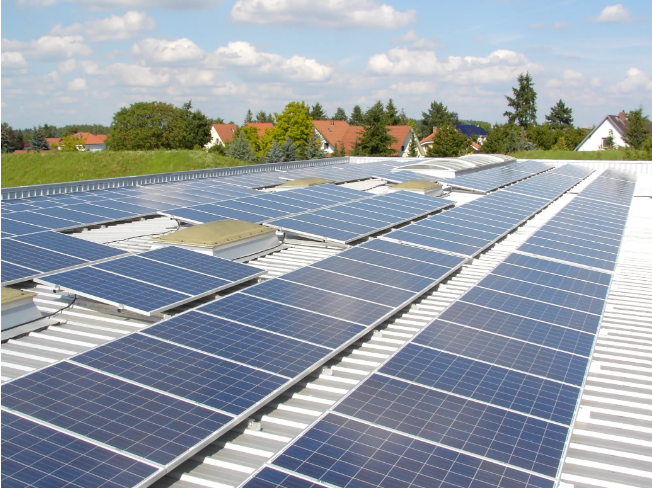The European Commission has introduced a temporary emergency rule to accelerate renewable energy development to counter the ripple effects of the energy crisis and Russia’s invasion of Ukraine.
The proposal, which plans to last for a year, will remove administrative red tape for licensing and development and allow renewable energy projects to be operational quickly. It highlights “the types of technologies and projects that have the greatest potential for rapid development and minimal environmental impact”.
Under the proposal, the grid connection period for solar photovoltaic plants installed in artificial structures (buildings, parking lots, transportation infrastructure, greenhouses) and co-site energy storage systems is allowed for up to one month.
Using the concept of “positive administrative silence,” the measures will also exempt such facilities and solar power plants with a capacity of less than 50kW. The new rules include temporarily relaxing environmental requirements for building renewable power plants, simplifying approval procedures and setting a maximum approval time limit; If existing renewable energy plants are to increase capacity or resume production, The required eia standards can also be temporarily relaxed, Simplify the examination and approval procedures; The maximum approval time limit for the installation of solar power generation devices on buildings shall not exceed one month; The maximum time limit for existing renewable energy plants to apply for production or resumption shall not exceed six months; The maximum approval time limit for the construction of geothermal power plants shall not exceed three months; The environmental protection and public protection standards needed for new or expansion of these renewable energy facilities can be temporarily relaxed.
As part of the measures, solar energy, heat pumps, and clean energy plants will be seen as an “overriding public interest” to benefit from reduced assessment and regulation where “appropriate mitigation measures is met, properly monitored to assess their effectiveness.”
“The EU is accelerating the development of renewable energy sources and expects a record 50GW of new capacity this year,” EU Energy Commissioner Kadri Simson said. To effectively address the high price of electricity prices, ensure energy independence and achieve climate goals, we need to accelerate further.”
As part of the REPowerEU plan announced in March, the EU plans to raise its solar target to 740GWdc by 2030, just after that announcement. The EU’s solar pv development is expected to reach 40GW by the end of the year, however, the Commission said it needs to grow a further 50% to 60GW a year to reach the 2030 target.
The Commission said the proposal aims to accelerate development in the short term to ease administrative bottlenecks and protect more European countries from the weaponization of Russian gas, while also helping to lower energy prices. These emergency regulations are tentatively implemented for one year.
Post time: Nov-25-2022

